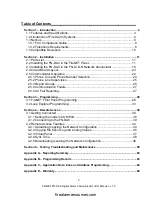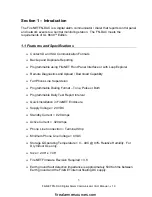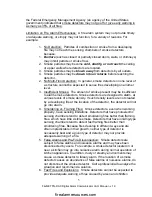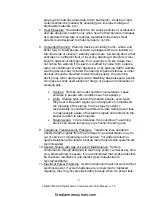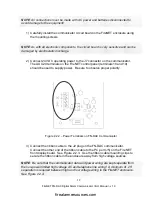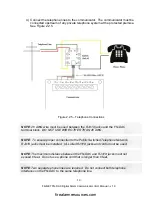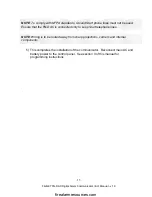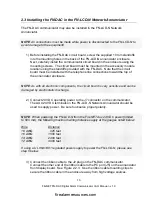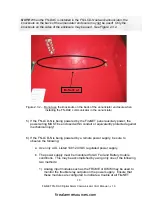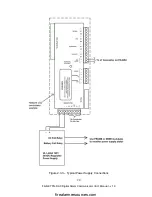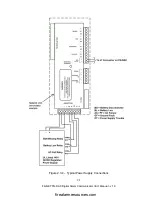
6
FireNET FN-DAC Digital Alarm Communicator I & O Manual - v 1.0
playing with matches (especially within bedrooms), smoking in bed,
violent explosions (caused by escaping gas, improper storage of
flammable materials, etc.).
7. Heat Detectors: Heat detectors do not sense particles of combustion
and are designed to alarm only when heat on their sensors increases
at a predetermined rate or reaches a predetermined level. Heat
detectors are designed to protect property, not life.
8. Unheeded Warning: Warning devices (including horns, sirens, and
bells) may not alert people or wake up sleepers who are located on
the other side of closed or partially open doors. A warning device that
activates on a different floor or level of a dwelling or structure is less
likely to awaken or alert people. Even persons who are aware may
not notice the warning if the alarm is muffled by noise from a stereo,
radio, air conditioner or other appliance, or by passing traffic. Audible
warning devices may not alert the hearing impaired (strobes or other
devices should be provided to warn these people). Any warning
device may fail to alert people with a disability, deep sleepers, people
who have recently used alcohol or drugs, or people on medication or
sleeping pills.
•
Strobes: Strobes can under certain circumstances, cause
seizures in people with conditions such as epilepsy.
•
Drills: Studies have shown that certain people, even when
they hear a fire alarm signal, do not respond or comprehend
the meaning of the signal. It is the property owner’s
responsibility to conduct fire drills and other training exercises
to make people aware of fire alarm signals and instruct on the
proper reaction to alarm signals.
•
Hearing
Loss: In rare instances, the sounding of a warning
device can cause temporary or permanent hearing loss.
9. Telephone Transmissions Problems: Telephone lines needed to
transmit alarm signals from the premises to a central station may be
out of service or temporarily out of service. For added protection
against telephone line failure, backup radio transmission systems are
recommended.
10. System Failure with Age or Lack of Maintenance: System
components, though designed to last many years, can fail at any time.
As a precautionary measure, it is recommended that smoke detectors
be checked, maintained, and replaced per manufacturer’s
recommendations.
11. Electrical Power Problems: System components will not work without
electrical power. If system batteries are not serviced or replaced
regularly, they may not provide battery backup when AC power fails.
firealarmresources.com


